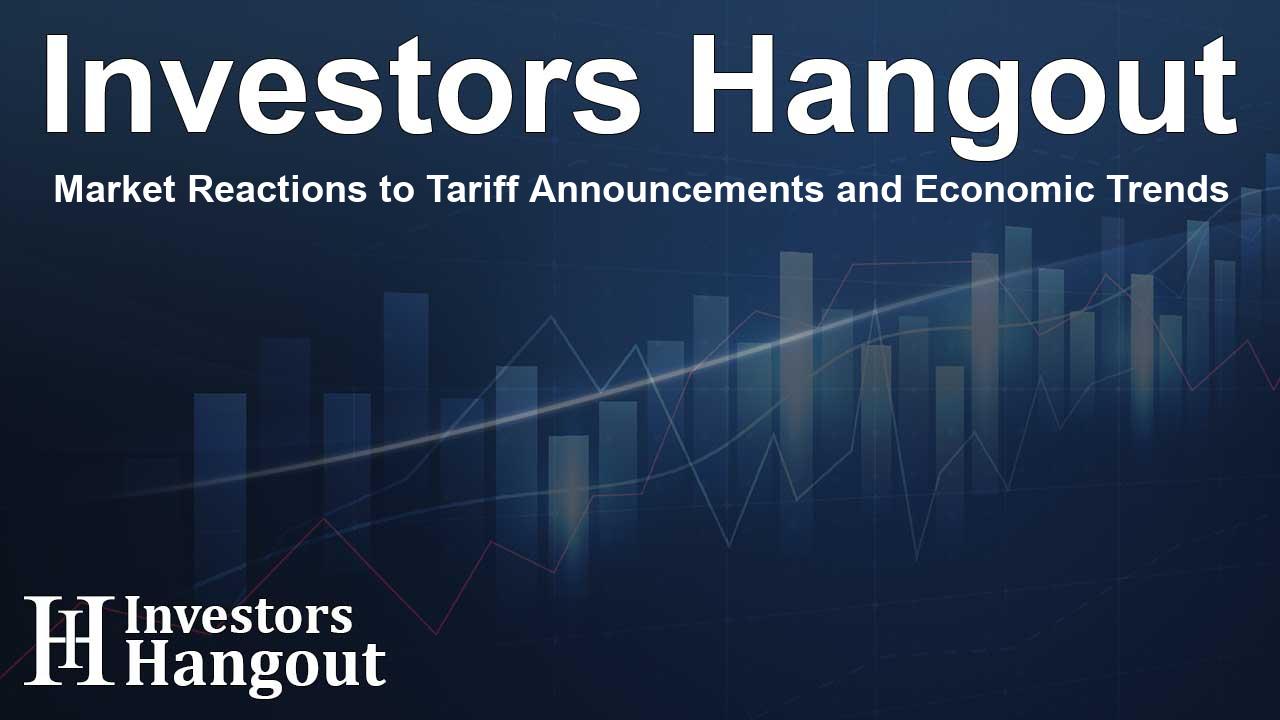Market Reactions to Tariff Announcements and Economic Trends

Tariff Announcements Spark Investor Reactions
In recent developments, President Trump's announcement regarding reciprocal tariffs has created a significant buzz in financial markets. Rather than escalating tensions, many believe this move is a strategic negotiation tactic. Although Trump aims to impose tariffs on every trading partner, it is evident that the timeline for any real implementation could stretch into the future, allowing for crucial discussions to take place before any actions are finalized.
Details surrounding the potential tariffs are expected to be clarified by spring, but investors remain optimistic that these threats are ultimately designed to foster concessions rather than enforce strict penalties. The 25% tariff previously suggested may not come into fruition as it has in negotiations with Canada and Mexico.
Investors Remain Hopeful Despite Inflation Concerns
While uncertainties loom over negotiations with significant players like the European Union and Japan, investors seem reassured that Trump will be cautious in his approach to avoid damaging the US economy. Recent data reflecting unexpected rises in producer prices and consumer prices haven’t deterred this sentiment. The probability of significant rate cuts by the Federal Reserve this year also appears slim, with only a one in three likelihood as inflation concerns persist.
Market participants remain hopeful for softer inflation data expected later in the month, which could bolster risk appetite. The ongoing balancing act between inflation concerns and encouraging economic indicators presents a complex landscape. Investors continue to view the situation through a lens of cautious optimism, believing that not all is lost.
Currency Reactions: US Dollar Weakens
Following the tariff announcements, US Treasury yields dropped significantly, resulting in the US dollar hitting near two-month lows against various currencies. This shift provided much-needed support for the euro and the British pound, which could be more exposed to Trump’s trade policies and consequent impacts.
Meanwhile, currencies like the Australian and New Zealand dollar, often less susceptible to these punitive measures, have shown strong performance this week, indicating a shifting dynamic in currency trading as investors react to the President's statements. Contrastingly, the Japanese yen reflects hesitance, as it faces challenges amidst broader economic remarks surrounding trade practices targeted by the administration.
Equity Markets Anticipate Positive Momentum
The equity markets are also enjoying a notable uptick in momentum. Wall Street's S&P 500 index has surged closer to its all-time high, suggesting that investor confidence remains robust despite inflationary spikes threatening the market’s stability. The Nasdaq composite index, while also experiencing gains, still trails behind its previous highs recorded late last year.
European markets are similarly thriving with key indices in Germany and the UK reaching record levels, showcasing a broader sentiment of positivity amongst global investors. Chinese equities, particularly in the artificial intelligence sector, have also shown remarkable resilience and growth driven by recent developments in the tech landscape.
Gold Prices and Market Uncertainty
While some markets are showing signs of flourishing, the uncertainty surrounding tariff negotiations is pushing gold prices upward toward unprecedented highs. This indicates that not all investors are convinced that the economic landscape is stabilizing and that the uncertainties presented by potential tariff implementations could lead to further market volatility.
The precious metal is trending towards the $2,950 mark as a response to ongoing uncertainty, revealing a diverging strategy from those looking to invest in more stable assets as a hedge against unpredictability. The evolving market dynamics present intriguing possibilities, encouraging observers to stay attuned to changes in both policy and economic outputs.
Frequently Asked Questions
What are reciprocal tariffs?
Reciprocal tariffs are tariffs enacted by a country in response to tariffs imposed by another country, aiming to create balance in trade relationships.
How have markets reacted to Trump's tariff announcements?
Markets have shown a mix of optimism and caution, with equities rallying while the dollar weakened, indicating a complex sentiment among investors.
What is the current state of inflation in the US?
Inflation in the US is a pressing concern, with producer prices and consumer prices rising unexpectedly, reflecting ongoing economic challenges.
What impacts do tariffs have on currency values?
Tariffs often lead to currency fluctuations as traders reassess risk and potential economic impacts from trade policies, directly affecting currency strength.
Is gold a safe investment during economic uncertainty?
Yes, gold is often viewed as a safe-haven investment during times of economic uncertainty, attracting investors looking for stability amidst volatility.
About The Author
Contact Lucas Young privately here. Or send an email with ATTN: Lucas Young as the subject to contact@investorshangout.com.
About Investors Hangout
Investors Hangout is a leading online stock forum for financial discussion and learning, offering a wide range of free tools and resources. It draws in traders of all levels, who exchange market knowledge, investigate trading tactics, and keep an eye on industry developments in real time. Featuring financial articles, stock message boards, quotes, charts, company profiles, and live news updates. Through cooperative learning and a wealth of informational resources, it helps users from novices creating their first portfolios to experts honing their techniques. Join Investors Hangout today: https://investorshangout.com/
The content of this article is based on factual, publicly available information and does not represent legal, financial, or investment advice. Investors Hangout does not offer financial advice, and the author is not a licensed financial advisor. Consult a qualified advisor before making any financial or investment decisions based on this article. This article should not be considered advice to purchase, sell, or hold any securities or other investments. If any of the material provided here is inaccurate, please contact us for corrections.
